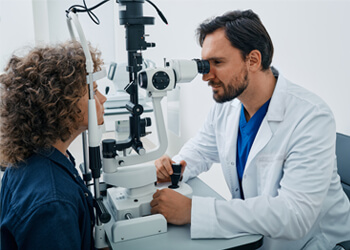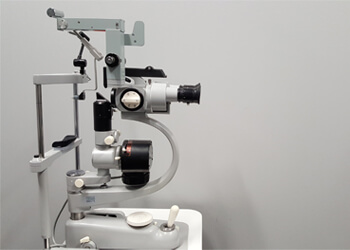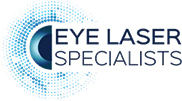Undergoing laser eye surgery is a life-changing experience. However, all surgical procedures come with a healing period. During your eye laser surgery recovery, your surgeon will recommend you follow certain instructions in order to optimise your healing and reduce your risk of complications occurring during the postoperative period. Here’s your guide on tips to smooth out your laser eye surgery recovery period.
What is Laser Eye Surgery?
 This is a type of operation aimed at surgically correcting your sight. There are a number of different techniques, all of which involve reshaping the front surface of the eye, the cornea. By changing the curvature of the cornea, light can be focused accurately onto the retina at the back of the eyeball. This is what gives us sharp sight. Different laser eye surgery techniques include:
This is a type of operation aimed at surgically correcting your sight. There are a number of different techniques, all of which involve reshaping the front surface of the eye, the cornea. By changing the curvature of the cornea, light can be focused accurately onto the retina at the back of the eyeball. This is what gives us sharp sight. Different laser eye surgery techniques include:
- LASIK (laser-assisted in situ keratomileusis)
- PRK (photorefractive keratectomy)
- SMILE (small incision lenticule extraction)
In addition to these laser-based techniques, there are other forms of vision-correcting surgeries. These include implantable contact lenses and refractive lens exchange.
Tips for an Uncomplicated Eye Laser Surgery Recovery
The different laser eye surgery techniques may vary your laser eye surgery recovery guidelines slightly. For the most accurate and relevant post-op instructions for your situation, always adhere to what your surgeon and clinical care team have advised you. These are some general recommendations to optimise your eye laser surgery recovery.
-
Know what’s normal or abnormal after laser eye surgery
Is your vision meant to be perfect the day after? Is this itching and burning normal? By having an understanding of what to expect during your eye laser surgery recovery period, you can act more quickly if something doesn’t seem right. Typically, you can expect some discomfort and redness of the eyes. They may itch or burn or feel like there’s a foreign particle stuck under your eyelid. You should also anticipate your sight to remain slightly hazy or blurry for a short while, depending on what type of laser eye surgery technique you had.
-
If something doesn’t feel right, don’t delay in contacting your surgeon
Even if your laser eye surgery went smoothly, you should remain vigilant for any complications arising during your eye laser surgery recovery period. If you find your sight deteriorating over time after your operation, or if your eyes are becoming increasingly painful, red, or glare sensitive, don’t postpone contacting your surgeon. If you can’t get hold of your eye surgeon, visit your local optometrist or even the hospital emergency department.
-
Avoid rubbing your eyes
As it’s common to experience some discomfort around the eyes in the first few days of your eye laser surgery recovery, it may be reflexive to want to rub your eyes. However, it’s important that you avoid doing this, especially if you’ve had LASIK. The LASIK laser eye surgery technique involves creating a flap of outermost corneal tissue. At the end of the operation, this flap is usually repositioned and left to self-seal without any stitches. Rubbing your eyes can dislodge the flap or open the way for foreign particles or bacteria to get between the flap and the rest of the corneal tissue, resulting in a sight-threatening complication.
-
Use all your prescribed eye drops
Your laser eye surgery recovery will be greatly helped along by the post-operative medicated eyedrops that your surgeon will prescribe you. The dosing schedule may vary over the course of four weeks or so, so it’s important to pay attention to when and how you’re using your drops.
-
Keep your eyes clean and protected
During the laser eye surgery recovery period, your eyes are in a vulnerable state. This is especially true for LASIK patients, due to the potential for flap-related complications.
 For a week or so after your laser eye surgery, you will want to avoid any cosmetics or other facial products around the eyes.
For a week or so after your laser eye surgery, you will want to avoid any cosmetics or other facial products around the eyes.
Also, try to avoid other less-obvious irritants, which may include rooms with a smoky fireplace, areas exposed to chemical vapours, dusty or dirty environments, or even the park on a windy day.
In addition to these irritants, it’s important to protect your eye from potential injury.
Depending on what type of surgery technique you had, you may need to avoid contact sports or rough activities for up to a month after your operation.
-
Wear sunglasses
It’s not unexpected for the eyes to be more sensitive to the light after your laser procedure. You may also experience haloes around lights. These common symptoms can make it difficult to drive at night. While wearing sunglasses for night driving isn’t recommended, you may want to keep a pair of sunnies at hand whenever you go out. If you’re feeling particularly glare-sensitive, you may even want to wear tinted lenses while indoors.
-
Get sufficient rest
Resting allows the body to direct its energy towards healing and recovering. If possible, delegate household chores and other strenuous activities to someone else. Take a break from vigorous exercise; a light stroll should be okay but ensure your eyes are protected from the elements. Depending on which laser surgery method you had and your occupation, you will also need to consider how much time you need off from work. Occupations that would expose you to strenuous activity or unclean environments will require a longer period of leave compared to sedentary office jobs.
Call us on (03) 9070 5788 for a consultation.
Note: Any surgical or invasive procedure carries risks. Before proceeding, you should seek a second opinion from an appropriately qualified health practitioner.
References
Laser eye surgery recovery tips.
https://visioneyeinstitute.com.au/eyematters/laser-eye-surgery-recovery-tips/
What should I expect before, during, and after surgery?
https://www.fda.gov/medical-devices/lasik/what-should-i-expect-during-and-after-surgery




